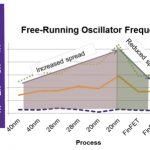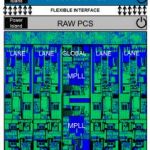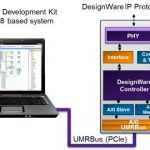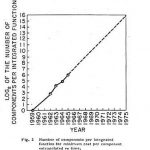USB is certainly the most ubiquitous of the Interface protocols, used in our day to day life to connect multiple systems, as well as in professional segments like industrial or even high performance servers (yes, these systems integrates USB 3 connections). But USB is also one of the protocols able to generate frustration every… Read More
Synopsys Buys Bluetooth IP
There is obviously a broad spectrum of semiconductor IP but broadly speaking it seems to fall into three buckets:
- foundation IP: standard cells, memories
- microprocessors and associated peripherals
- interface IP
Foundation IP is where it all started. When I was at Compass Design Automation in the 1990s that was pretty much what… Read More
Why Automotive IP Portfolio is not just IP
Synopsys is launching a broad IP portfolio to support SoC development dedicated to emerging automotive complexes functions, like Driver Assistance (ADAS), Driver Information, Vehicle Network or Infotainment. I was never involved into IC design for Automotive, but I have designed ASIC for avionics (CFM56 motor control) or… Read More
Synopsys Aquires Security IP Company Elliptic
On Monday Synopsys announced that it was acquiring Elliptic Technologies. They have one of the largest portfolios of security IP consisting of both semiconductor IP blocks and software. Increasingly, security requires a multi-layer approach involving both secure blocks on the chip and a software stack on top of that.
Elliptic’s… Read More
Synopsy Eats Their Own Dogfood
One of the most interesting presentations that I went to was the last presentation at the Synopsys Custom Lunch (no, the lunch wasn’t custom, we all got the same, but the presentations were about custom design). Since the last presentation was by Synopsys themselves and not by a customer, it wouldn’t seem promising that it could … Read More
Vacationing with the Fabless Semiconductor Ecosystem!
The Design Automation Conference is the largest and most diverse event in the fabless semiconductor ecosystem. Next week in San Francisco you will see technology and people you have never seen before. You will benefit from the efforts of hundreds of thousands of semiconductor professionals like myself who have dedicated their… Read More
How to Push Mobile to Use PCI Express?
By offering low-power PCI Express PHY solution for mobile application! To make it clear, we are not talking about Mobile Express (M-PCIe), but clearly about PCI Express protocol, including a PCIe Controller and a PCIe PHY. Initially developed to support internal connection between the CPU and the GPU in a PC, the technology has… Read More
ARM A57 (A53) Virtualizer + IP Accelerated = ?
Hybrid IP Prototyping Kit from Synopsys!
Synopsys has launched IP Accelerated initiative last year. The goal was clearly to accelerate Time-To-Market by providing a complete set of “tools” to augment design productivity:
- IP Prototyping Kit with reference designs work out-of-the-box
- IP software development kits enable early
GPP, GPU or Embedded Vision Dedicated Processor?
Before answering the question we should try to define what is behind “Vision”, which type of applications and evaluate this heterogeneous market weight. Embedded Vision (EV) is the use of computer vision in embedded systems to interpret meaning from image or video. In fact vision processing requires a lot of maths functions that… Read More
25 Years of SNUG; 50 Years of Moore’s Law
Earlier this week it was the Synopsys user group meeting SNUG. Not just any old SNUG but the 25th Annual SNUG. The first one was 15th March 1991 and was attended by 100 people. At the time, Synopsys had annual revenues of $22M. This year, the various SNUGs around the world will have a total attendance of 10,000 people and Synopsys revenue… Read More











